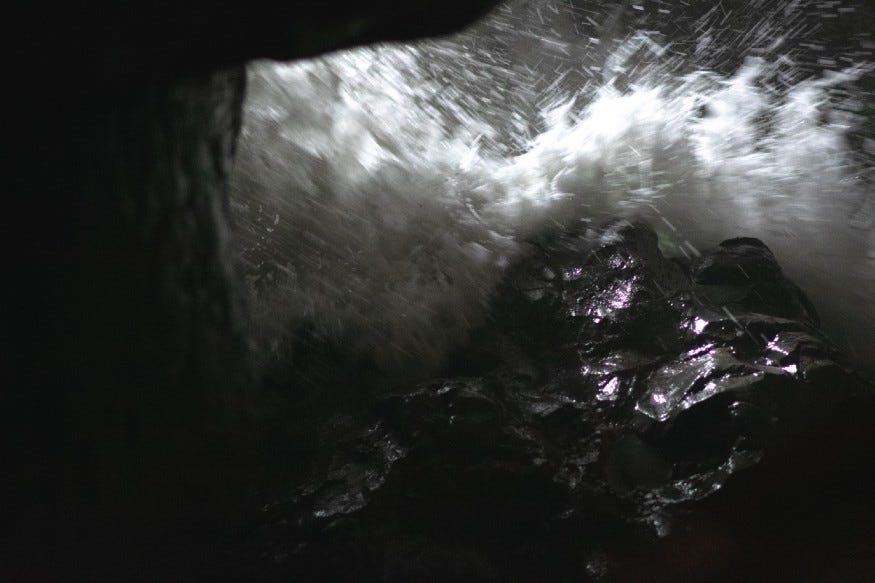“Truth Coding” Could Dramatically Improve The Integrity And Impact Of Our Writing
The term “truth coding” is my initial name for how I believe we can put critically important “balance” in our writing

(Upfront I acknowledge that this article is too long and wordy, so I need to edit it down substantially. I believe it contains some useful ideas but for now you do have to wade through too much text.)
Nowadays it seems we live with more falsification of information than ever before. Certainly it has gotten steadily worse during the internet age. This saturation of falsehood is very costly, wasteful, and destructive.
Spinning, one-siding, distorting, presenting half truth, exaggerating, embellishing, dramatizing, presenting hyperbole, sensationalizing, emotionalizing, presenting innuendo, … unfortunately all these forms of partial falsification are commonplace and have become standard.

These communication practices listed above REALLY ARE PARTIAL FALSIFICATIONS in that they don’t present unvarnished, unaltered, unadulterated, honest, factual, balanced, and complete information, so then they do in fact mislead and deceive people. Thus they are costly, wasteful, and destructive to the whole of humanity, in descending degrees.
And they often become habits that build up ongoing destructive results.
And these various forms of partial falsification often do morph into outright lies, which are even more destructive.

The bulk of non-science information and communication in humanity is un-supported opinion that seems to result in unwarranted impact. We essentially live in a virtual reality in our heads created by our representational thinking in which far too much of the information we critically depend on is actually falsified in various degrees. Self correction of our information is direly needed.
Some horrible societal consequences of these standard practices of partial falsification and full falsification include the siloed, polarized dysfunctional outcomes in politics, government, and many other aspects of our social lives.
“Singing to one’s choir”, via writing or other communication, adds to the entrenched polarity, so then doing this adds to our collective problems.
Some writers no doubt would believe that ranting about one side of an issue could help somehow, could contribute something useful, but an argument can be convincingly made that in fact such venting could be harmful, all considered.
To deceive or lie to someone is to disrespect them, at the very least, and often it is to harm them, sometimes very badly. All such behaviors are ultimately destructive to humanity.
Truth ultimately is the pursuit of reality and discovering reality is the critical path of human progress. Anything else is usually at least a distraction, or is wasteful, and often is destructive.
We actually cannot afford falsification, yet it is everywhere, all the time. So then, how do we begin to recover from all this destruction and waste?

WE HAVE TO LEARN TO PRODUCE BALANCED INFORMATION AND COMMIT TO MAKING IT THE STANDARD. Below are some initial ways to begin this recovery from our current pathological communication standards:
1… In writing and other communication, we must STOP SPINNING, one-siding, exaggerating, etc, and certainly we must not lie. And obviously clickbaiting is destructive.
2… We must try to offer CREDIBLE EVIDENCE for each assertion we make. We must offer self-judged probability for the accuracy and correctness of each of our assertions. If we can’t offer evidence and/or credible probability, then we must admit that we are just presenting un-supported opinion or belief.
3… We must offer credible views other than our own, and CONFLICTING VIEWS, to balance against our own views.
4… We must tell readers how they can REPLICATE THE EVIDENCE we present for our views, and then when we present our opinions and beliefs without evidence we should try to support these opinions with logic and explain to readers how they can replicate our logic.
These 4 points above could go a long way toward providing self correction in non-science, which always has been critically needed. One of the powerful reasons science works so spectacularly well is that it is self correcting.
The 4 points above are much like the objectivity of scientific thinking. This objectivity is direly needed also in non-science.
A given communicator may contemplate the above procedures and then suspect that writers and other presenters of information, who really don’t want to present balanced information, could easily undermine and corrupt these procedures.
Yes, they could defeat these procedures, but if these ideas do catch on and are employed more and more, then over time every writer will be building a reputation that is either good or bad, trusted or not.
Writers and other communicators who want to begin to recover societies from the current standards of falsification, with all its breathtaking scope of destruction and waste, will embrace such ideas as “balanced communication” and then their reputations will grow. They will become recognized for their integrity and will be trusted.
Conversely, communicators who will resent and resist balanced communication will steadily build bad reputations, as un-trustable communicators.
There are other ways, than as offered above, to provide evidence for each assertion we make in our communication.
One other way to do this is just to embed the evidence for our views within the normal flow of our writing. And we could even embed evidence for the conflicting views and within our guidance for replication, if desirable.
Embedding our evidence for our assertions, along with the credible conflicting views and our guidance for replication, may be a better way to do “truth coding”.
One way for me to learn how to improve these ideas is to add “truth coding” to everything I publish, one way or other, which I will do.
For example, for the article I posted on Medium back in 2021 entitled “Einstein Was Wrong About Time” I’ve now gone back to that article and have begun adding more “balance” to that, and then I will do so for the other articles that I posted earlier on Medium, while trying out different options for adding the “truth coding”.

So then here, let’s review how the 4 points of balanced communication listed above can be applied to this article itself:
1.. Re spinning and all the other partial falsehoods listed further above, in this article I’ve tried not to spin but admittedly I’ve offered ideas from a point of view (POV). And I’m also saying that when we do present a POV we should label it as such.
2.. Re evidence and probability for my assertions, in this article I am not offering any objective evidence for my opinions, though later on I may well offer such evidence.
And I mentioned another option for adding evidence which is to just embed within the flow of our writing either the evidence for our assertions or the admission that no evidence is being presented. And likely going forward we’ll discover additional options for doing “truth coding”.
In non-science, this is often how our communication works. We present our opinions, without evidence, but when we do this we should state this fact and then slowly this admission should become a critically important part of our communications.
Then of course when we can present evidence for our offerings, pro or con, we should do that, as well as to tell our readers how they could verify and replicate our evidence, and the interpretation of our sources, etc.
3.. Re other and conflicting views, I can imagine that there could be a multitude of disagreements with various elements of this article about balanced communication, so here I will try to acknowledge some possible disagreements with my views:
1) If our legal system works on one-siding and spinning, i.e. on the adversarial presentation of so-called “facts” and arguments that often contain partial falsehoods and sometimes even full falsehoods, then why can’t our so-called news media, our politics and government, our social institutions, and even our familial and individual communications do the same? (I won’t debate this point here but might well do so in follow-on article(s))
2) It would be a monumental task to try to overturn the current ubiquitous falsification of information that we swim in today, the commercialized corruption of so-called news media, and all aspects of communication in society, so why even try? (I won’t debate this point here but might well do so in follow-on article(s))
3) There is no need to present balanced communication because with the carpet bombing falsification of information that is standard today people are steadily learning the hard way not to trust anyone or anything, and that ultimately will make people stronger, though at huge cost, waste, and destruction. (I won’t debate this point here but might well do so in follow-on article(s))
4.. Re replication of, or support for, the ideas I’ve presented in this article, I believe that if people will seriously train themselves to think better, more objectively and more analytically, and will consume adequate amounts of news and other information from both the rightwing and the leftwing of our society, and if we all will sincerely try to find balanced truth, then people may be able to form useful and critical opinions about such ideas as are presented in this article.

Now then, probably most people would agree that nationally and internationally we do have an enormous problem with the falsification of information and communication.
But whether I have proposed a credible beginning toward some improvements in this global scourge is another question.
Huge numbers of people do make a part or all of their livelihood by participating in or actually communicating partial or full falsification of information. So they might well not welcome the suggestions in this article.
And even those who might embrace the contents of this article will recognize that this article does ask everyone who communicates to do some additional work toward self correction of non-science information and communication. This won’t be welcomed, in part because most people already seem overworked.
So then overall the ideas herein probably won’t be received well. Well then, why should I even be offering these ideas?
Because someone somewhere has to begin offering something toward improvements. It is maddening to see all the cost, waste, and destruction from false information and communication. This article is just one attempt to begin to address this global problem and try to find some improvements.
Even though it would appear to be fairly easy for communicators to do the 4 steps recommended herein, it is recognized that it will be exceedingly difficult to get some traction with all this.
Why? Because human neurology evolved to function on deep-seated bias. We couldn’t live without bias, but this core function of neurology is a two-edged sword. The negative side of this neurological necessity, called bias, does cause the bulk of human social lockups, e.g. the polarized leftwing / rightwing political and governmental dysfunctional stalemates.
We must do more effective things to begin to reduce the deep conflicts in societies around the planet and we must learn new and better ways to live together on our precious and irreplaceable planet.
Future humans will not be able to depart our solar system. Period. The physics of unfathomable distance and lack of doable speed just won’t allow it. So our precious planet is the permanent home of future humanity and if we continue to destroy it then we in fact are destroying future humanity.
I believe that beginning some practices for self correction of non-science information and communication is imperative. And maybe some better ideas will emerge.

To recap, I’m suggesting that the following steps would move us toward self-correction of information and communication in areas of non-science, and to do this we must:
Stop spinning …
Provide evidence for our offerings …
Present conflicting views …
Explain how others could replicate our offerings and evidence …
Below are four categorical arenas of falsification of information and communication in humanity, around the planet, that I was addressing above with my “truth coding” ideas:
1… Politics and Government. Human beings don’t make good leaders and managers. The old joke is so true that the way you recognize that a politician is lying is by whether he is moving his mouth. Both major political parties in the U. S. do routinely spin and lie, in their own separate patterns. Then when politicians from both wings get elected to government office they continue these corrupt informational practices. Duh. Who thought this could go otherwise? (But then, not all politicians are corrupt so then are we contributing to the informational problems in society when we rant about how ALL politicians are corrupt, or about how any one politician is fully corrupt?)
2… Commercialized News Media. How did sane people ever believe that commercializing the news would be a good idea? Now we have in the U. S. dueling news media, i.e. the rightwing media versus the leftwing media, and both sides of course have commercial agendas so they dramatize, sensationalize, and constantly spin the news in their own separate patterns, to the detriment of society and humanity. (Surely most people would agree with this)
3… Publications of all kinds. On the internet we are deluged with content of endless types but sadly the bulk of it all seems to be biased, slanted, un-balanced, incomplete, commercialized, and non-objective. Much of it is un-trustable. We have long needed methods for making non-science information and communication self correcting. Can “truth coding” begin to do this? (Self correction is a huge reason that science is so fantastically successfully)
4… All other social institutions of humanity and down to the level of communities, groups, families, and individuals. Well, here sadly reside the consequences of “trickle down” corruption of information and communication … from politics and government, commercialized news media, social institutions of humanity and all the rest. (My opinion)
(This article was originally published on Medium.com September 30, 2022)


